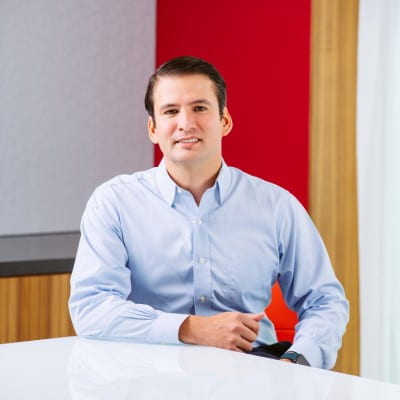 These are some of the topics we discussed with Artemio Garza, who leads Egon Zehnder’s Communication Officers practice in North America. Artemio is a core member of Egon Zehnder’s Marketing and Digital practices. Based in Miami, his special focus is on multi-unit retail, consumer goods, and private equity companies.
These are some of the topics we discussed with Artemio Garza, who leads Egon Zehnder’s Communication Officers practice in North America. Artemio is a core member of Egon Zehnder’s Marketing and Digital practices. Based in Miami, his special focus is on multi-unit retail, consumer goods, and private equity companies.
Carl Zangerl (CZ): Tell us about what your job at Egon Zehnder entails.
Artemio Garza (AG): Our mission at Egon Zehnder is to create a better world through great leadership. I have a marketing and communication background myself, and I advise companies on how to structure their communication functions and help identify people who can assume leadership roles.
‘Taking the pulse’ of communication leaders worldwide
CZ: You invited me to listen in to one of Egon Zehnder’s virtual check-ins with Chief Communication Officers. It was fascinating to hear how communicators at J&J, TripAdvisor, Burberry, Amex, Harvard, and other organizations are responding to the crisis. What is the purpose of these sessions?
AG: Everyone has to deal with this global crisis. We’ve had four calls thus far, and as we progress through the stages of the crisis, the issues and priorities are also evolving. During a time like this, networks are more important than ever – people need to share experiences and learn from each other.
We summarized the challenge on our website: “Given the high demand for both internal and external communications in a crisis, as the stewards of their organization’s corporate reputation and brand, corporate affairs and communications leaders must split their attention between crisis and long-term corporate reputation and communications objectives.”
What’s expendable, what’s essential, and what’s emerging
CZ: Leaders often describe this situation as a marathon, not a sprint. For communicators, what does that mean?
AG: This is a crisis that will take months and perhaps years to resolve. Communicators need to be there with their stakeholders throughout the journey, telling their stories.
In recent conversations with clients, we’re beginning to focus on what will be different, what will change when a new normal emerges. We’re calling this thought process ‘the 3 E’s’: What’s expendable, what’s essential, and what’s emerging.
So in practical terms, communication teams need to consider what they can stop doing; what activities are essential to support the performance of their organizations; and what needs to be focused on to accommodate the dramatic changes we’re seeing in the way people work. Sharing information with employees and consumers on how to navigate through uncertainty is an emerging role.
CZ: During the call I listened to, a number of communication leaders mentioned that they were relying heavily on sentiment tracking. What are some of the best practices you have heard about to take the pulse of audiences, internal and external?
AG: Messages have to be tailored for specific audiences. And sentiment tracking allows us to know whether these messages are getting through and having the desired impact. Organizations are using a wide range of tools to capture this feedback – surveys, but also more advanced techniques, including those employing Artificial Intelligence.
CZ: This is a time when communicators often have to deliver bad news. Many travel-related companies, for instance, are laying off thousands of workers. What advice do you have about balancing transparency with avoiding doom-and-gloom messages.
AG: Avoid the element of surprise! Communicate as early and as transparently as possible so that people can be prepared to deal with the bad news. Also, do what you can to reduce the level of uncertainty. Not an easy thing to do in this environment.
What the crisis portends for communicators
CZ: What’s your sense now and in the near future about job opportunities for communicators?
AG: This crisis has underscored the importance of communication. CEO’s are relying on their communication teams to deliver important messages and build a sense of community. So we are seeing a strong demand for communication leaders who can ‘step up’ and become strategic advisers.
At Egon Zehnder, we try to get a handle on the potential an individual has to grow professionally, to assume new responsibilities, to lead teams and build relationships across functional areas.
What are the attributes we look for? I’d emphasize four key aspects: Curiosity, insight, engagement, and determination. During a crisis like the one we’re experiencing, communicators who demonstrate these attributes will be positioned for career advancement.
Posted by Carl Zangerl, Faculty